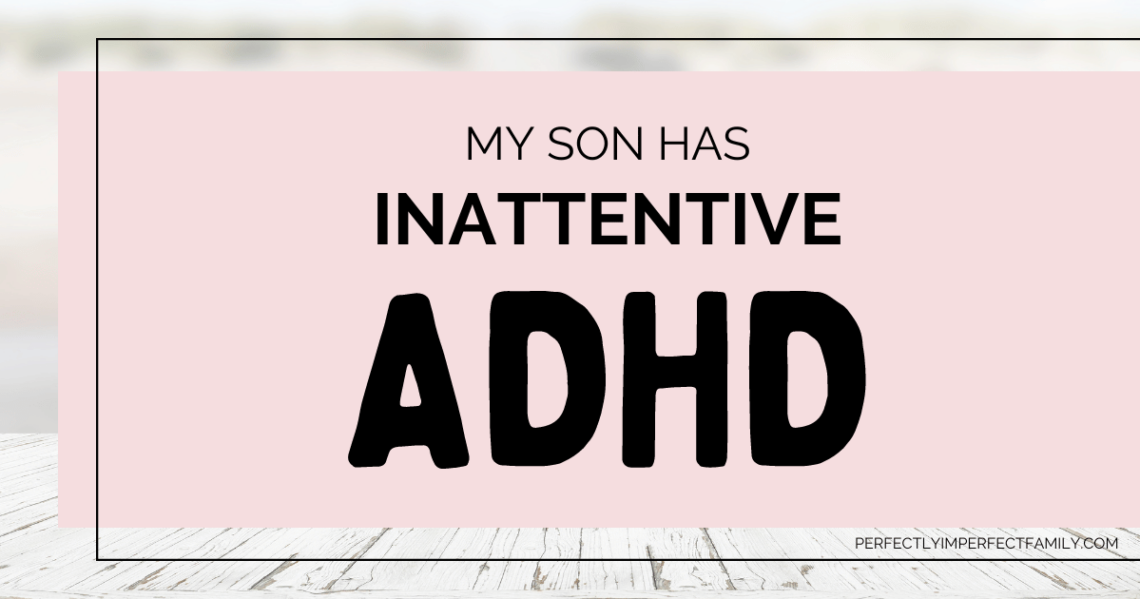3 Summer Rules for Our Summer Vacation
I don’t know about other families, but in our family, my kids think that summer vacation equals laziness and that they don’t have to do anything. I am unsure where they picked up on that idea, but I want to break them of that habit this summer. To help me break this habit, I have created rules and chores they must follow before being on electronics or hanging out with friends. These include getting ready and doing personal and other chores around the house.
They need more structure to be more productive this summer than in past summers. They are way past old enough to help me keep the house clean. They should have started helping me with the house years ago. I know you are probably asking why I have never had them help me around the house more, and the simple answer is I don’t know.
After school ended, I sat my children down, and we discussed what I was expecting of them this summer break. I explained to them that I would love to do some fun activities, but I can only do that if we keep the house somewhat clean. I also explained that I didn’t want my summer to be spent picking up after them.
Here are the new rules.
GET READY FOR THE DAY IN THE MORNING
Usually, the kids like to be pretty slow in the mornings, which is fine with me to a degree. I don’t want it to be lunchtime before they get ready for the day. I am fine with them chilling for a little bit when they get up, but I would like them to get ready for the day shortly after that.
Getting ready for the day includes:
- Having Breakfast
- Getting Dressed (my kids usually shower at night, but if they don’t, this would include them showering in the morning).
- Brushing Teeth
- Doing Hair (my girls hate this one). I don’t care if they do their hair, just as long as it is brushed and looks like they fixed it.
COMPLETE EVERYDAY CHORES
I would like them to do their daily chores after they get ready. I have found out that if they don’t do their chores in the morning, they will never get the chores done. I have them do two different chores. There are the everyday chores that they are expected to get done every day. Then, there are the chores that can change daily or that I need help with.
- Picking up their room
- Making their bed
- Putting dirty clothes in the hamper
- Vacuuming their room if it needs it
- Picking up the bathroom
COMPLETE HOUSEHOLD CHORES
After they complete their daily chores, I will usually have one or two chores I need them to complete around the house to help me out. These can include things like:
- Loading/unloading dishwasher
- Vacuuming
- Dusting
- Laundry
- Picking up the living room/craft room
- Cleaning out the car
This list of chores changes daily, depending on what I need help with. I try not to have too many chores because no one wants to spend their whole day cleaning. I don’t even want to do that as an adult, so I can’t expect my kids to clean all day. I hope they can finish this all in the morning, and we can play by lunchtime!
I would like all of their chores done before lunch. After lunch, they can have free time. We will go to the pool or the park. Sometimes, we have planned activities. This is why I would like them to get their chores done early. I like to have fun with my kids, but keeping the house in order is important to me. I try to balance them both.
CHALLENGES WE FACE IN OUR HOUSE
I must confess I always start the summers well with all these rules and high expectations. I usually am very strict about it for about the first two weeks, and then I slowly get less and less strict as the summer goes on. I am hoping these rules are easy enough that we can last a little longer than a few weeks. Of course, it will last all summer in my perfect world, but I know that will never happen. I hope they pick up a few skills that will continue into the school year.
You must also keep in mind that every child is different. My son has ADHD and is very unorganized. He also gets distracted very easily. I can’t ask him to go clean his room. It will never get done. I have to ask him to do small tasks.
I can ask one of my daughters to go clean her room, and she will be able to get most of it cleaned on her own without my help. I usually help her with the last bit, like throwing the trash away or reminding her to vacuum.
My youngest does not like to clean at all. She will usually throw a tantrum for a while before she even starts cleaning. Once she realizes I won’t back down and she still has to clean, I usually have to be in the room to keep her on track.
I am sure your children have different personalities and need to be motivated differently, just as my children do. Keep that in mind when you are coming up with your own rules or chores.
Do you have rules like this for the summer? I hope some of these ideas help you stay a little sane this summer while your children are home. I would love to hear your ideas on what you have your children do in the summer to help around the house. Please leave me a comment. For now, Happy Summer!
Our Son’s Challenges With Hyperfixation
One of the challenges that our son, who has inattentive ADHD, deals with is hyperfixation. In this blog post, I want to help you understand what hyperfixation is and what challenges our son and family face.
What is Hyperfixation?
Hyperfixation is best defined as an intense or prolonged interest in or an obsession with an activity, subject, or person. Simply put, a person who experiences hyperfixation has their attention completely absorbed and consumed by a particular activity or interest for an excessive or unhealthy amount of time.
There are times where see see this behavior, or intense focus or obsession with an activity in our son. Our son tends to hyperfixate on video games. He will completely immerse and lose himself in a video game for hours on end. He tends to ignore or delay everything he needs to do when he starts hyperfixating and playing video games, and sometimes it takes a major effort to break him out of that hyperfixation. He has gotten better in recent years in many respects, but he still has his moments where we see him hyperfixate.
Some common characteristics of hyperfixation that can manifest in many different situations are:
- A person will begin a task and suddenly realize many hours have passed.
- A person may ignore or not respond to others, making it extremely difficult to communicate with them and get their attention.
- A person will be unaware of what is happening around them and may tune out things like people talking, the weather, and the time.
- A person may ignore and/or delay their personal needs, such as eating or sleeping because they’re so focused on the task at hand.
- A person may find that they have a hard time stopping or switching to a different activity.
Hyperfixation can and will manifest itself differently from one person to another. Some get completely wrapped up in a hobby, while others engage in random activities like watching TV or scrolling through Pinterest.
Benefits of Hyperfixation
Wait, there are benefits and positive side effects to hyperfixation? Yes, there are many things can prove to be a benefit to those who deal with hyperfixation. These benefits of hyperfixation are only useful when focused on something productive.
1. Intense Focus
Those who have hyperfixation undergo a state of intense focus on their task or subject at hand. When this subject is positive, the attention given to it and only it can lead to doing things that no one else can do.
When our son has focus, he can accomplish anything. It is amazing to see when he gets so wrapped up in a subject what he’s able to learn and do. I’m constantly in awe about what he can accomplish when he gains focus and puts his effort into it.
2. Boundless Energy
Those who have hyperfixation tend to disregard their bodies signs for fatigue or tiredness. The don’t get bored, but rather they just keep going and going.
When our son hyperfixates he is just like this. It doesn’t matter what time it is, or how tired he may be, he just keeps going.
3. High Productivity
People who have hyperfixation can get a lot done in a little amount of time with no distractions, an intense focus, and boundless energy.
Negative Symptoms of Hyperfixation
There are also a lot of downsides and negative symptoms of hyperfixation. Some of these negative symptoms can lead to stress, grief, and problems not only for the person who is hyperfixating, but also for those who are trying to interact with them.
1. Not Listening
A common problem of hyperfixation is that a person will just not listen. Regardless of what you’re trying to say to them they end up completely ignore you. What’s really going on is that a person likely doesn’t even hear you. because they’re so focused on what they’re doing that they simply tune out everything else that’s going on around them.
2. Distracted
Even when a person is physically present, those who hyperfixate may tend to seem distracted or distant. This can easily be thought of as going through the motions but they’re in a completely different world.
3. Unable to Pay Attention
A person who hyperfixates may seem like they’re paying attention and listening to what you’re saying, but when you’re done talking to them, they don’t remember a thing you said.
4. Not Doing Chores / Essential Tasks
A person who hyperfixates will tend to put a lower priority on chores and tasks that need to be completed because it doesn’t align with their interests. This can be ignoring things like washing and folding laundry, to not wanting to bathe and shower.
5. Being Late / Making Others Wait
Because a person who hyperfixates gets so caught up in the activity their doing or focused on, when it’s time for them to stop and transition to something else, it becomes very hard to break out of the activity. People who struggle with this can say things like, “just five more minutes.”
My Son Has Inattentive ADHD
My son has Inattentive ADHD. Inattentive ADHD is a subtype of ADHD in which a person has a hard time focusing and paying attention, and doesn’t show the hyperactive behavior normal associated with ADHD. As I have come to understand my son and his diagnosis, I see that often kids with this type of ADHD are overlooked because they’re not hyperactive or causing disruptions.
One of my goals in writing this blog is to share the experience of what our family goes through with ADHD. I’ve written a lot about tactile defensiveness already, and today, I wanted to focus on ADHD. I’ll be honest, I don’t know where to begin with this topic. I feel like it is such a vast topic. I also know there are many of you that are dealing with the same challenges that I am. I don’t claim to be a professional on dealing with ADHD, but I’ve learned a lot in our challenges that I want to share. Everything I write about ADHD is from my own experiences working with my son.
Uncovering His ADHD Diagnosis
My son started showing signs that something was off in the first grade. Since he was our first child, we didn’t notice anything different. We didn’t think anything was wrong until his first grade teacher mentioned that he had a hard time following directions. We took it under advisement and continued to watch him, but we didn’t do anything that year because I still wasn’t sure if he was different from his peers.
In second grade, his teacher mentioned something about his ability to follow directions to us again, and that is when we decided that we needed to take him to the doctor to have him tested. My son was diagnosed with ADHD when he was in second grade. We had a lot of help from his teacher that year, and she was very supportive and we loved her for it!
When he’s unable to focus, you can think of it as he has a million thoughts running through his mind at once, and each one takes his mind on a different track of thought. He may be able to maintain focus for bit, but there are a lot of other thoughts competing for his attention.
After he was diagnosed, it was apparent to my husband and I that he needed a little help to be able to focus in school so we decided that we would put him on medication. You can read our experience on Should You Medicate Your Child for ADHD?
It has been a long journey over the years. We have been through a lot of challenges with him. There has also been some good times as well. Even through all the challenges I wouldn’t change it for anything.
There are so many challenges and experiences that come with an ADHD diagnosis. I am planning to break down a lot of the things I have learned along the way, and things I struggle with. To continue to read about our experiences with ADHD, please subscribe below.
Follow Perfectly Imperfect Family.com
I would also love to hear from any one that is has a child that has ADHD and how you have managed it. Please, come on this journey with me!
Our Family’s Two Completely Different Types of Picky Eaters
The other day, I was talking to my youngest daughter about her picky eating. She commented about how she is a picky eater, but her brother is a picky eater, and he has an excuse. Then she said she was so sorry about being a picky eater. After some thought, I realized my family has two types of picky eaters.
Our Picky Eater #1 – My Son
Our family’s number one picky eater is my son. He has tactile defensiveness. (Read more about his challenges with tactile defensiveness). If you’ve been following this blog, you’ve heard about it, but for a quick overview, my son doesn’t like how things feel on his skin. This also includes how food feels in his mouth. Because he has tactile defensiveness in his mouth, he has difficulty eating certain foods.
Finding something for him to eat at mealtime is challenging and a daily struggle. He won’t eat anything slimy or gooey, such as soup or pasta with any sauce. What usually ends up happening is he will find something he likes to eat, and then he eats that until he doesn’t like it anymore, and then the process starts all over. This makes it hard for me to make dinner for him. He will usually try something new if it doesn’t look too gooey. A lot of the time, I typically have to find something else for him to eat other than what we are having for dinner.
I know there are a lot of you out there who are probably saying make him eat what you cook. With him, it just isn’t that simple. I try to make food for dinner that he will eat, but sometimes, I like to make what I want to eat. I make him try it, and sometimes he will, but he often doesn’t like how it feels in his mouth. So, with him, I try to do the best I can.
Our Picky Eater #2 – My Youngest Daughter
Our family’s number two picky eater is my youngest daughter. She doesn’t like anything. Listen, I mean anything when I say she doesn’t like anything. I try to make a variety of food for her, but she won’t eat anything. She is the most stubborn person I have ever met! Her essential meal is pasta but without sauce. It’s just plain old pasta, sometimes with melted butter. There are very few other things that she will eat.
It is hard to explain why she has to eat something when her brother doesn’t. She has grown up watching her brother being a picky eater, so she comes by it honestly and thinks she doesn’t have to eat something if he doesn’t. She is still young and doesn’t fully understand her brother’s condition. We have tried explaining it to her, but it is hard for her to comprehend. Now that she is getting older, she is starting to understand, but that hasn’t made up for the years of her picky eating.
I believe most of her picky eating comes from being afraid. She’s often afraid to try something new and thinks she will not like it, so she doesn’t try it.
How Do I Handle My Family’s Picky Eaters?
Now that you understand more about what kind of picky eaters I have, you are probably wondering how I handle it. Honestly, there is no magical way to handle it. The best thing I do to help them with their picky eating is encouragement. I try to encourage them to try new foods. It doesn’t always work, but when it does, it feels like such a milestone for me and for them.
Is there some magical way to get your picky eater to eat? I am going to say no. I think each child is different. What works with my son doesn’t work with my daughter. I would do the best you can with your child. They can be stubborn, that is for sure. I must remind myself to keep going constantly; you are doing great!
I would love to hear from anyone with a picky eater and how they deal with it. I often feel at my wits’ end. Please comment and share your knowledge so we can all help each other.
How Am I Supposed To Get My Son Ready For College?
I went to a meeting last night that was a huge eye-opener! My son is a junior in high school. Maybe that can give you a hint. The meeting was about how to pay for college. I was screaming inside the whole time I was at this meeting.
In my mind, I was like, there is no way I have a child old enough to start looking into going to college. Where do you start? The only nice thing for us is that my son knows exactly what he wants to do. That narrows down the college choices and the applications.
I came home with two main concerns about starting the college process. First, I feel have nowhere near taught my son enough to be out there on his own. Second, how are we going to pay for this? These kept me up all night long.
Sending my child out into the real world is such a scary thought. I feel like I still have so much to teach him and such little time. He hasn’t even had his first job yet, and I have to start thinking about college. This can’t be. I know it is impossible to teach your child everything, but they still need to learn to be successful before you send them out there.
The list of things I want to teach him seems a mile long. On top of that, he is a teenager and doesn’t want to learn anything right now. So how do I teach him without him knowing I am teaching him?! I guess that is the million-dollar question. I want my children to be successful and be a good person in society. I might be more concerned about my son because he is an introvert and ikes to be at home. He doesn’t like to go out and be in the public. That issue is a whole other post. My top priority for the next two years is just teaching him life skills.
My second concern is paying for college. I haven’t been out of college for that long, but I guess it has been longer than I thought. Back in the day, I thought my college was expensive. Compared to the expense of college now, it was so cheap. When I took financial classes in high school or college, they only discussed saving for retirement. There was never any mention of saving for your children’s college education.
In this meeting, they talked a lot about scholarships. I know that is a good option, but that was so overwhelming. There are so many options out there that I don’t even know where to begin. Scholarships are great, but there is no guarantee. More likely than not, even if you get a scholarship, you will still have to pay a lot in tuition. The other question is, Do you help pay for your child’s college or make them pay for themselves?
I am sure you can tell how overwhelmed and stressed I felt after this meeting. So until I can figure it out, I advise you to start teaching life skills as soon as they are age-appropriate and save for college as soon as possible!!!





